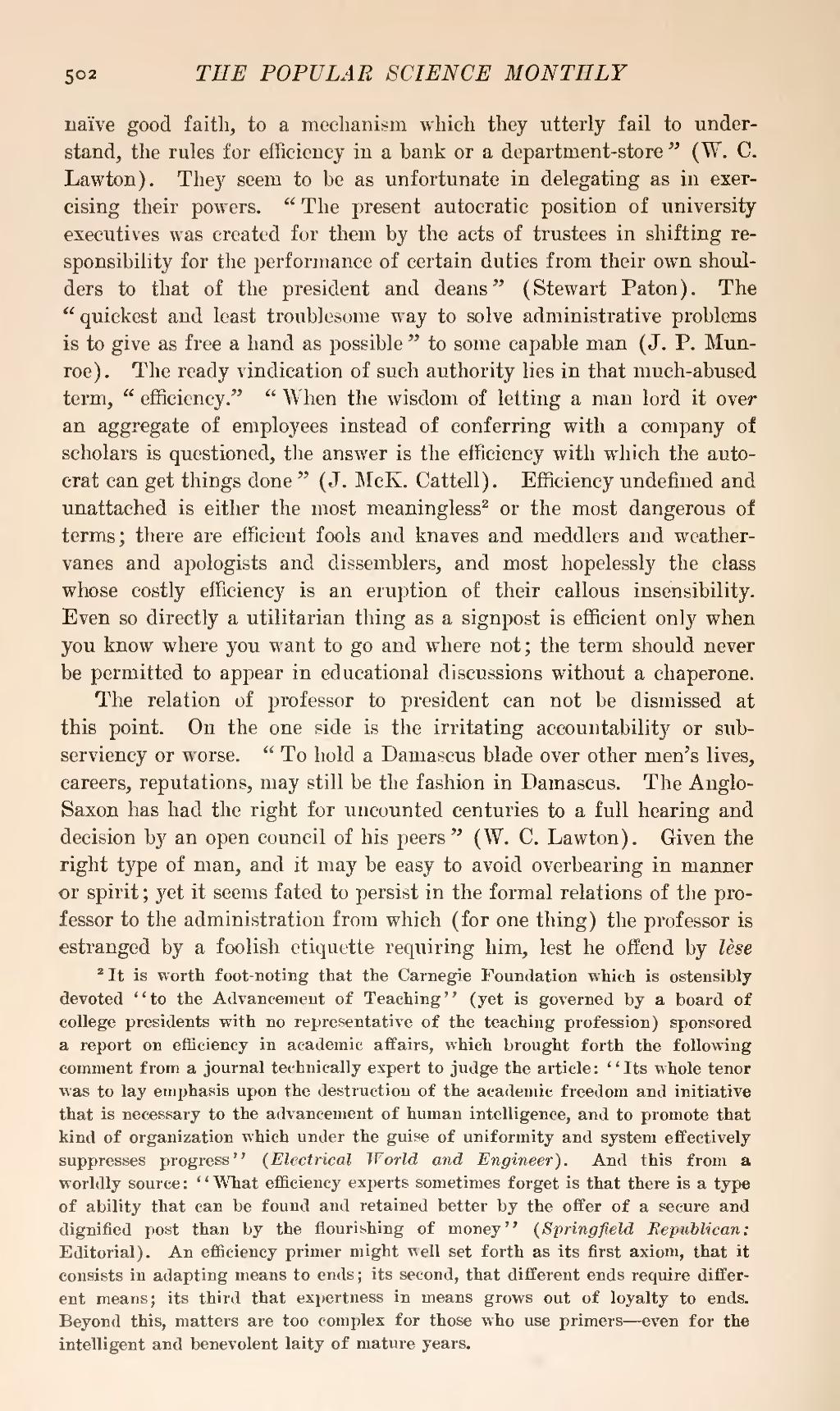naïve good faith, to a mechanism which they utterly fail to understand, the rules for efficiency in a bank or a department-store" (W. C. Lawton). They seem to be as unfortunate in delegating as in exercising their powers. "The present autocratic position of university executives was created for them by the acts of trustees in shifting responsibility for the performance of certain duties from their own shoulders to that of the president and deans" (Stewart Paton). The "quickest and least troublesome way to solve administrative problems is to give as free a hand as possible" to some capable man (J. P. Munroe). The ready vindication of such authority lies in that much-abused term, "efficiency." "When the wisdom of letting a man lord it over an aggregate of employees instead of conferring with a company of scholars is questioned, the answer is the efficiency with which the autocrat can get things done" (J. McK. Cattell). Efficiency undefined and unattached is either the most meaningless[1] or the most dangerous of terms; there are efficient fools and knaves and meddlers and weather-vanes and apologists and dissemblers, and most hopelessly the class whose costly efficiency is an eruption of their callous insensibility. Even so directly a utilitarian thing as a signpost is efficient only when you know where you want to go and where not; the term should never be permitted to appear in educational discussions without a chaperone.
The relation of professor to president can not be dismissed at this point. On the one side is the irritating accountability or subserviency or worse. "To hold a Damascus blade over other men's lives, careers, reputations, may still be the fashion in Damascus. The Anglo-Saxon has had the right for uncounted centuries to a full hearing and decision by an open council of his peers" (W. C. Lawton). Given the right type of man, and it may be easy to avoid overbearing in manner or spirit; yet it seems fated to persist in the formal relations of the professor to the administration from which (for one thing) the professor is estranged by a foolish etiquette requiring him, lest he offend by lèse
- ↑ It is worth foot-noting that the Carnegie Foundation which is ostensibly devoted "to the Advancement of Teaching" (yet is governed by a board of college presidents with no representative of the teaching profession) sponsored a report on efficiency in academic affairs, which brought forth the following comment from a journal technically expert to judge the article: "Its whole tenor was to lay emphasis upon the destruction of the academic freedom and initiative that is necessary to the advancement of human intelligence, and to promote that kind of organization which under the guise of uniformity and system effectively suppresses progress" (Electrical World and Engineer). And this from a worldly source: "What efficiency experts sometimes forget is that there is a type of ability that can be found and retained better by the offer of a secure and dignified post than by the flourishing of money" (Springfield Republican: Editorial). An efficiency primer might well set forth as its first axiom, that it consists in adapting means to ends; its second, that different ends require different means; its third that expertness in means grows out of loyalty to ends. Beyond this, matters are too complex for those who use primers—even for the intelligent and benevolent laity of mature years.
